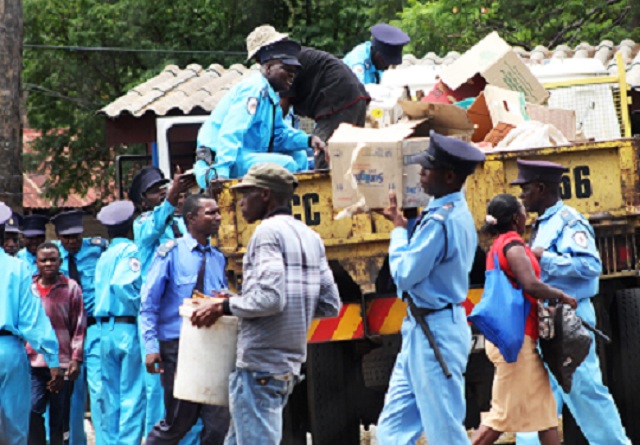The City of Bulawayo has written to the Ministry of Local Government and Public Works requesting arresting powers so that its municipal security can arrest offenders rather than relying solely on national police for all operations.
The Attorney General’s office is reportedly currently reviewing a proposal that the Bulawayo City Council (BCC) submitted to its parent ministry to address this problem.
Bulawayo Town Clerk, Christopher Dube, revealed this when he stated that the city needed arresting powers to apprehend offenders who violated by-laws.
“The other difficulty we have at the moment is, we know as a city of Bulawayo, our (municipal) security doesn’t have arresting powers for us to carry out operations. If we are to carry out operations, we do so with support from police,” he said at a meeting with various stakeholders on Thursday to review Bulawayo’s Local Environmental Action Plan (LEAP).
“In other words, the police, should be the one heading those operations but they have a lot of things to do in terms of their mandate. So, they are also falling short in terms of the support they are giving us.”
Dube revealed that BCC had “already made a proposal to the ministry of local government,” as a strategy.
According to the town clerk, the proposal “has gone through and is now with the Attorney General.”
“We want a situation like in all SADC countries, where we have metropolitan police who are able to arrest offenders without referencing the national police force,” Dube said.
He also stated the local authority was calling for municipal courts to be set up to deal effectively with offenders.
“We are also suggesting to have our municipal courts because if we arrest anyone, as you can see right now at Fifth Avenue, we have more than 2 000 people operating illegally but even if we are to arrest them and take them to court, we are wasting the court’s time as the court itself is overwhelmed,” the town clerk said.
“We are saying let’s have our municipal courts, which will also be affiliated to the judiciary where we can deal with very trivial issues, like you have been caught selling wares illegally or you in a place where you are not supposed to be, so those are some things we are trying to do.”
Municipal courts, according to Dube, will be useful because judicial officers do not always understand the scope of environmental issues.
“If the judiciary doesn’t understand environmental issues, they will think we are just wasting their time and those people will be acquitted.”
During the discussions, Crispen Ngulube, a member of the Mafakela Health and Environment Taskforce, suggested that the city by-laws may be insufficient to deal with the environmental challenges caused by vendors on Fifth Avenue.
The town clerk responded, “city by-laws are there, and I’m sure they are adequate.”
“From time to time, we try as much to review them. I’m sure they are adequate,” Dube said, noting that one area where BCC fell short was enforcement.
“Enforcement can not only be done by ZRP and City of Bulawayo security, we should also have community policing because you are the very people out there, as stakeholders and community, who are generating this litter. You are throwing litter everywhere.
“You want to do business everywhere without licenses so you are the people we have to target and say, ‘let’s come together, let’s see what we can do.’ Let’s have community policing.”

